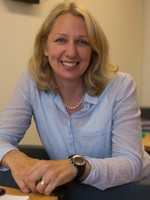14 Mar Parents Live Longer Than Those Without Children
MedicalResearch.com Interview with:
Dr. Karin Modig, PhD
Institute of Environmental Medicine,Epidemiology
Karolinska Institute
MedicalResearch.com: What is the background for this study?
Response: The background to the study was that even though it is established that parents live longer than non-parents the underlying mechanisms are not clear. And it was not known how the association changed with the age of the parents. We hypothesize that if social support is one mechanism – the association between having children and the death risk of parents-non-parents would increase with age of the parents, when health starts to deteriorate and the need of support increases.
MedicalResearch.com: What are the main findings?
Response: The main findings are that the death risk differences between parents and non-parents persist into-, and even grow larger in, old age.
Children probably provide important support to their aging parents, and that old aged individuals without children or other close kin maybe need extra support.
Among men, the death risk differences between those who have children and those who have not are larger among non-married than among married, potentially suggesting that men are more protected by marriage than women or that childless men are socio-economically less advantaged than childless women, for example, that they are generally lower educated than childless women.
MedicalResearch.com: What should readers take away from your report?
Response: That social support is likely important in old age, and that children may be important in this aspects.
MedicalResearch.com: What recommendations do you have for future research as a result of this study?
Response: I think others should try to replicate our findings to see if this association is seen also in other populations, where for example health care organization look different. Also, any differences in death risks over age should preferable be presented as absolute risk differences in age strata if all-cause mortality is the outcome.
MedicalResearch.com: Is there anything else you would like to add?
Response: Further, we do not know where the differences in death risks between parents and non-parents arises. We are currently performing another study where we look closer into the support of children during different phases, such as before getting ill and after, for surviving the disease.
MedicalResearch.com: Thank you for your contribution to the MedicalResearch.com community.
Citation:
-
Payback time? Influence of having children on mortality in old age
Note: Content is Not intended as medical advice. Please consult your health care provider regarding your specific medical condition and questions.
More Medical Research Interviews on MedicalResearch.com
[wysija_form id=”5″]
Last Updated on March 14, 2017 by Marie Benz MD FAAD

